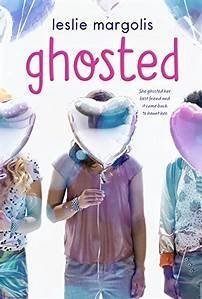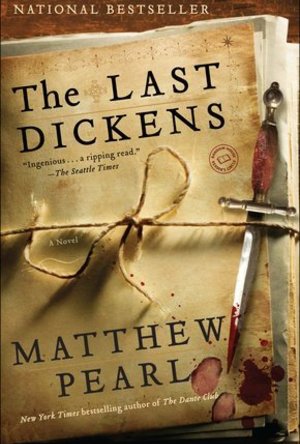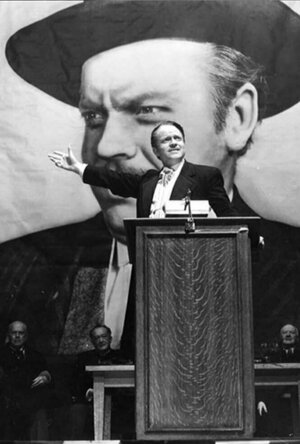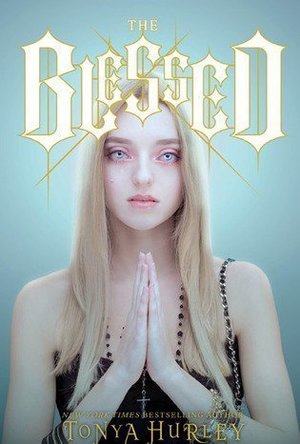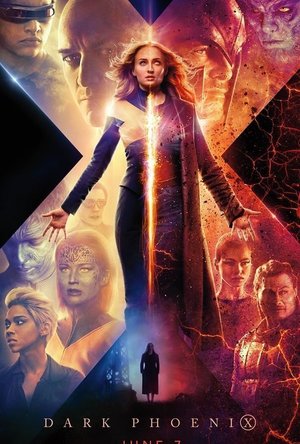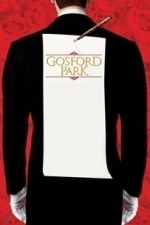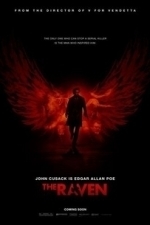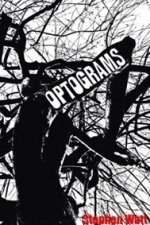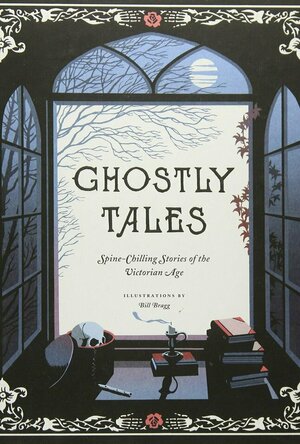Search
Search results
Mark @ Carstairs Considers (2357 KP) rated Ghosted in Books
Dec 17, 2018
Mean Girl Gets Scrooged
Ellie Charles rules Lincoln Heights Middle School. Everyone wants to be her friend and everyone wants to please her. She's top of the class academically, president of the student body, and chairperson of every committee that matters. Maybe she rules with an iron fist, but no one seems to mind - at least as best Ellie can tell.
The book opens the day of the winter dance. Naturally, Ellie is chair of the dance committee, and it is going to be awesome! However, when Ellie falls off a ladder, she finds herself having a freaky out of body experience. Suddenly, she's back five years ago when her best friend, Marley, and Marley's two dads lived across the street. Back before her father left her and her mother right before Christmas. Why is she witnessing these events again? And who is the Girl in Black who seems to be following Ellie on this trip down memory lane?
Being a big fan of A Christmas Carol, I had to give this modern middle grade take on the classic a try. While I enjoyed aspects of it, including a few clever nods to the original, I felt the book was lacking overall. Ellie is just so mean it is hard to root for her. The book spends much of the time in the past, and Ellie's sad past doesn't help things. The expected ending seems abrupt and short, so we don't get as big a pay off as we would like after our trip with Ellie. Then again, it might just be that I'm not the target audience. Either way, this won't be making my list of beloved spins on the Dicken's classic.
The book opens the day of the winter dance. Naturally, Ellie is chair of the dance committee, and it is going to be awesome! However, when Ellie falls off a ladder, she finds herself having a freaky out of body experience. Suddenly, she's back five years ago when her best friend, Marley, and Marley's two dads lived across the street. Back before her father left her and her mother right before Christmas. Why is she witnessing these events again? And who is the Girl in Black who seems to be following Ellie on this trip down memory lane?
Being a big fan of A Christmas Carol, I had to give this modern middle grade take on the classic a try. While I enjoyed aspects of it, including a few clever nods to the original, I felt the book was lacking overall. Ellie is just so mean it is hard to root for her. The book spends much of the time in the past, and Ellie's sad past doesn't help things. The expected ending seems abrupt and short, so we don't get as big a pay off as we would like after our trip with Ellie. Then again, it might just be that I'm not the target audience. Either way, this won't be making my list of beloved spins on the Dicken's classic.
Phil Leader (619 KP) rated The Last Dickens in Books
Nov 18, 2019
I will hold my hand up to two things at the start of this review. Firstly I am drawn to fiction based on other fiction, and secondly I'm not a big Dickens fan. For various reasons I just don't find him an interesting read.
However I can't deny his impact as a novelist at a time when reading as a past time was only just reaching the masses. And so this book looked intriguing.
Primarily set immediately after the death of the famous author, having completed exactly half of the installments of his latest book - The Mystery of Edwin Drood - James Osgood, the junior partner in his American publishers is sent to England to try to track down any other parts of the manuscript.
However dark forces are afoot; there are two murders related to the Dickens papers in short order and Osgood is attacked on the ship to England. Clearly someone does not want any more of Drood to be published.
Pearl has taken one of the greatest literary mysteries of all (there really are no clues about how Drood was supposed to conclude) and wrapped it in another fictional conundrum. He has clearly researched all of the details very well and uses real people - including Osgood and Dickens himself- along with fictional characters to tell the story. This gives the plot a certain solidity because so much of it is based in reality, with the fabricated parts showing through the cracks.
The narrative moves between 1870 and Osgood's quest, to India at the same time where Frank Dickens (son of Charles) is investigating drug smuggling and to 1868 when Dickens is performing a reading tour of America.
The plot is more-or-less highly plausible, just some coincidental points that require a little suspension of disbelief. The writing is excellent throughout, highly descriptive and particularly good at capturing the personalities of the characters (as would be expected given how carefully this has been researched). There are several action scenes at the book progresses and these are handled well. The villains are unmasked in classical style, gloating with our heroes apparently doomed only for the tables to be turned.
Honestly I was expecting this to be reasonably interesting, highlighting aspects of Dickens' life and death with a little light murder mystery thrown in. In the end I would call this nothing less than a triumph and will definitely be looking to read more of Pearl's work.
It's still not tempted me to read any Dickens, though...
However I can't deny his impact as a novelist at a time when reading as a past time was only just reaching the masses. And so this book looked intriguing.
Primarily set immediately after the death of the famous author, having completed exactly half of the installments of his latest book - The Mystery of Edwin Drood - James Osgood, the junior partner in his American publishers is sent to England to try to track down any other parts of the manuscript.
However dark forces are afoot; there are two murders related to the Dickens papers in short order and Osgood is attacked on the ship to England. Clearly someone does not want any more of Drood to be published.
Pearl has taken one of the greatest literary mysteries of all (there really are no clues about how Drood was supposed to conclude) and wrapped it in another fictional conundrum. He has clearly researched all of the details very well and uses real people - including Osgood and Dickens himself- along with fictional characters to tell the story. This gives the plot a certain solidity because so much of it is based in reality, with the fabricated parts showing through the cracks.
The narrative moves between 1870 and Osgood's quest, to India at the same time where Frank Dickens (son of Charles) is investigating drug smuggling and to 1868 when Dickens is performing a reading tour of America.
The plot is more-or-less highly plausible, just some coincidental points that require a little suspension of disbelief. The writing is excellent throughout, highly descriptive and particularly good at capturing the personalities of the characters (as would be expected given how carefully this has been researched). There are several action scenes at the book progresses and these are handled well. The villains are unmasked in classical style, gloating with our heroes apparently doomed only for the tables to be turned.
Honestly I was expecting this to be reasonably interesting, highlighting aspects of Dickens' life and death with a little light murder mystery thrown in. In the end I would call this nothing less than a triumph and will definitely be looking to read more of Pearl's work.
It's still not tempted me to read any Dickens, though...
BankofMarquis (1832 KP) rated Mank (2020) in Movies
Jan 7, 2021
Good companion piece to CITIZEN KANE
Orson Welles’ 1941 masterpiece CITIZEN KANE is truly a remarkable work of art (especially for the time it was created) and it regularly lands in either the #1 or #2 spot on my list of all-time favorite films (battling back and forth with THE GODFATHER - the one that ends up at #1 is usually the one I have watched most recently), so I am a sucker for films that are about (or around) the making of this classic.
And…the Netflix film MANK does not disappoint in this regard.
Starring Oscar winning actor Gary Oldman (he won the Oscar for portraying Sir Winston Churchill in DARKEST HOUR), Mank tells the tale of the writing of the screenplay of CITIZEN KANE by screenwriter Herman Mankiewicz. It is an intriguing story of a self-destructive, alcoholic artist (is there any other kind in this kind of film) that (ultimately) produces one of the best scripts in Hollywood history, despite (or maybe because of) his condition and the people he interacts with along the way.
Directed by David Fincher (FIGHT CLUB) - who is one of my favorite Directors working today - MANK starts slow but brews to a satisfying conclusion as Fincher focuses on the man and the relationships he has with the people around him, rather than the circumstances, which then draws to a forceful conclusion.
Gary Oldman is, of course, stellar as Herman “Mank” Mankiewicz, the writer at the center of the story. This film hinges on this performance as the titular Mank is in almost every scene of this film - and at the beginning I was worried that Fincher was going to let Oldman revert to his “hammy” ways (a very real possibility with Oldman if he is left unchecked by a Director), but Fincher reels Oldman in just enough for him to bring a portrait of a troubled man, who has sold his soul to work and alcohol. This character needs to find that soul if he is to succeed. Since Mank won the Oscar for his screenplay - and I’ve already stated that I think the CITIZEN KANE screenplay is one of the best written of all time - you know how it will turn out, but it is fascinating (and satisfying) to watch Oldman on this journey.
Fincher, of course, is smart enough to surround Oldman with some very good Supporting Actors, most notably the always evil Charles Dance (Tywin Lannister on GAME OF THRONES) as William Randolph Hearst (the inspiration for Charles Foster Kane). Dance spends most of the film observing Mank but in the final “confrontation” scene between the two, the screen sparkles as two wonderful thespians throw down.
Others in the Supporting cast - like Lilly Collins, Tom Burke (as Orson Welles), Jamie McShane and, especially Arliss Howard (as Louis B. Mayer) bring heft and the ability to go “toe to toe” with Oldman, not a small task.
Special notice has to be made of the work of Amanda Seyfried as Marion Davies - Hearst’s mistress and a character that is used as a “throw away toy” in Citizen Kane. Davis and Mank form an interesting bond and the platonic chemistry between Seyfried and Oldman is strong. I gotta admit that when Seyfried first burst on the scene in such films as MAMA MIA and MEAN GIRLS, I figured she was just the “pretty young Rom-Com girl of the time” and would come and go quickly, but she has rounded into a very impressive actress and I can unequivocally state that I was wrong about her. She can act with the best of them.
The Cinematography by Erik Messerschmidt is also a very important part of this film - as he (and Fincher) attempt to recreate in this film the look/feel of CITIZEN KANE and they pull this off very, very well.
If you can get through the slow start of the film - and if you can stomach a protagonist that is not a very nice person in most of this film, than you’ll be rewarded by a rich film experience.
Letter Grade: A-
8 stars (out of10) and you can take that to the Bank(ofMarquis)
And…the Netflix film MANK does not disappoint in this regard.
Starring Oscar winning actor Gary Oldman (he won the Oscar for portraying Sir Winston Churchill in DARKEST HOUR), Mank tells the tale of the writing of the screenplay of CITIZEN KANE by screenwriter Herman Mankiewicz. It is an intriguing story of a self-destructive, alcoholic artist (is there any other kind in this kind of film) that (ultimately) produces one of the best scripts in Hollywood history, despite (or maybe because of) his condition and the people he interacts with along the way.
Directed by David Fincher (FIGHT CLUB) - who is one of my favorite Directors working today - MANK starts slow but brews to a satisfying conclusion as Fincher focuses on the man and the relationships he has with the people around him, rather than the circumstances, which then draws to a forceful conclusion.
Gary Oldman is, of course, stellar as Herman “Mank” Mankiewicz, the writer at the center of the story. This film hinges on this performance as the titular Mank is in almost every scene of this film - and at the beginning I was worried that Fincher was going to let Oldman revert to his “hammy” ways (a very real possibility with Oldman if he is left unchecked by a Director), but Fincher reels Oldman in just enough for him to bring a portrait of a troubled man, who has sold his soul to work and alcohol. This character needs to find that soul if he is to succeed. Since Mank won the Oscar for his screenplay - and I’ve already stated that I think the CITIZEN KANE screenplay is one of the best written of all time - you know how it will turn out, but it is fascinating (and satisfying) to watch Oldman on this journey.
Fincher, of course, is smart enough to surround Oldman with some very good Supporting Actors, most notably the always evil Charles Dance (Tywin Lannister on GAME OF THRONES) as William Randolph Hearst (the inspiration for Charles Foster Kane). Dance spends most of the film observing Mank but in the final “confrontation” scene between the two, the screen sparkles as two wonderful thespians throw down.
Others in the Supporting cast - like Lilly Collins, Tom Burke (as Orson Welles), Jamie McShane and, especially Arliss Howard (as Louis B. Mayer) bring heft and the ability to go “toe to toe” with Oldman, not a small task.
Special notice has to be made of the work of Amanda Seyfried as Marion Davies - Hearst’s mistress and a character that is used as a “throw away toy” in Citizen Kane. Davis and Mank form an interesting bond and the platonic chemistry between Seyfried and Oldman is strong. I gotta admit that when Seyfried first burst on the scene in such films as MAMA MIA and MEAN GIRLS, I figured she was just the “pretty young Rom-Com girl of the time” and would come and go quickly, but she has rounded into a very impressive actress and I can unequivocally state that I was wrong about her. She can act with the best of them.
The Cinematography by Erik Messerschmidt is also a very important part of this film - as he (and Fincher) attempt to recreate in this film the look/feel of CITIZEN KANE and they pull this off very, very well.
If you can get through the slow start of the film - and if you can stomach a protagonist that is not a very nice person in most of this film, than you’ll be rewarded by a rich film experience.
Letter Grade: A-
8 stars (out of10) and you can take that to the Bank(ofMarquis)
Sensitivemuse (246 KP) rated Precious Blood (The Blessed, #1) in Books
Nov 3, 2018
Not for everyone, but I enjoyed it
What I liked about this book is it was able to draw you in slowly to the plot and it unfolds gradually by introducing you to the main characters and their backgrounds. You can’t help but keep reading to see what will happen next. Your curiosity is piqued and it’s worth reading through. There is a chapter here and there that lets you think ‘Gee what the heck am I reading here’ but it makes up for it wholeheartedly towards the ending of the book.
The plot and the pace is slow but steady. You’re taken through each girl’s perspective and when they finally come together, if you can bypass the pettiness and mean girl attitude (some parts were quite fun to read, the comebacks are something to be filed away for future use should need arise) they actually do make a solid team. Each girl has their own story and their own pain to deal with. Of the three, I’d taken a liking to Cecilia. She’s a tough one and although all three have gone through a substantial amount of pain, Cecilia seems to be the most likable and the most independent (plus she’s a Rocker girl. Who doesn’t think Rocker Girls are cool?)
As the story unfolds, it gets chaotic towards the last third of the novel. Pretty good action - brutal at times so might not be for the faint of heart, and of course it leaves room for more things to come (two books follow after this one). Understandably this book might not be for everyone. Gratuitous swearing, references to Catholicism which may be offensive to some, some serious what the F chapters that make you wonder what kind of shrooms they’re on, and references to rape are mentioned in the book.
So while it may not be for everyone, I was surprised that I enjoyed reading this one so much. Although it took awhile for the book to gain momentum and this thing with Sebastian being a somewhat Charles Manson wannabe without the murders is a bit tedious, it was actually pretty good. However it comes across as a book that either you’ll really like, or you’ll really hate. So, when in doubt, just take it out of the library and save your money for other things.
The plot and the pace is slow but steady. You’re taken through each girl’s perspective and when they finally come together, if you can bypass the pettiness and mean girl attitude (some parts were quite fun to read, the comebacks are something to be filed away for future use should need arise) they actually do make a solid team. Each girl has their own story and their own pain to deal with. Of the three, I’d taken a liking to Cecilia. She’s a tough one and although all three have gone through a substantial amount of pain, Cecilia seems to be the most likable and the most independent (plus she’s a Rocker girl. Who doesn’t think Rocker Girls are cool?)
As the story unfolds, it gets chaotic towards the last third of the novel. Pretty good action - brutal at times so might not be for the faint of heart, and of course it leaves room for more things to come (two books follow after this one). Understandably this book might not be for everyone. Gratuitous swearing, references to Catholicism which may be offensive to some, some serious what the F chapters that make you wonder what kind of shrooms they’re on, and references to rape are mentioned in the book.
So while it may not be for everyone, I was surprised that I enjoyed reading this one so much. Although it took awhile for the book to gain momentum and this thing with Sebastian being a somewhat Charles Manson wannabe without the murders is a bit tedious, it was actually pretty good. However it comes across as a book that either you’ll really like, or you’ll really hate. So, when in doubt, just take it out of the library and save your money for other things.
BankofMarquis (1832 KP) rated X-Men: Dark Phoenix (2019) in Movies
Jun 22, 2019
These X-Men end not with a Bang but with a Whimper
"This is how it ends,not with a bang, but with a whimper".
Running a successful movie franchise is a tricky thing. For every franchise that ends successfully (the original Harry Potter series, the recent Avengers), there are many, many more that just sort of peter out (The Hunger Games, The Maze Runner, every version of Star Trek), and, unfortunately, this run of the X-MEN is finishing up with a look of boredom and disinterest.
And that's too bad for the DARK PHOENIX story line had great, dramatic potential to go with a series of whiz-bang special effect set pieces that should have been spectacular. Telling the tale of erswhile X-Men "hero", Jean Grey, who is turned into a villain and battles her former mates, DARK PHOENIX is filled with missed opportunities.
Let's start with the lackluster Direction and lame script - both by Simon Kinberg - a Producer and sometime writer who is making his Feature Film Directorial debut with this film. He should stay with Producing. His direction is limp and uninspired which fits in well with his uninspiring dialogue and clunky interactions and plot machinations.
At least the top notch actors can save this turkey, right?
Nope. For the most part, they are just as uninspired and mediocre as the direction and writing and that is too bad for they are a strong collection of performers. James McAvoy is just lost as Charles Xavier. I can see the look in his eyes as he is thinking to himself "what is my character trying to do here"? I didn't believe for a second that he believed anything his character was saying and doing. Same goes for the usually reliable Nicholas Hoult as Hank McCoy/Beast. The script has these two at odds with each and they both act these scenes with a "we don't buy this contrived fight either" chagrined look.
The usually reliable Jessica Chastain is wasted as the main villain in this film, a mysterious figure who serves as the anti-Charles Xavier mentor to Jean Grey (Sophie Turner, more on her later). It looks to me that she was given the "George Lucas/Natalie Portman/Star Wars: Episode 1" acting guideline - be one note and monotonous and take out any hint of emotion. Which also takes out any hint of interest.
As for Turner, I'm sorry to say this about an actress that I generally loved in GAME OF THRONES, but she is just plain bad in her role as the conflicted Jean Grey. Her character is torn between the good and the bad, but instead of acting that, she says it over and over again "I don't know what's happening to me", "I feel torn". She (and Director/Writer Kinberg) violate the #1 rule in movies - "Show, don't tell". They "tell" over and over and don't take the time to show. Disappointing wouldn't begin to describe my reaction to Turner's performance.
At least Jennifer Lawrence is there to ground this film and bring some of her star power, right? Nope. She waltzes through the few scenes she has in this film with the look of "I am contractually obligated to be here".
Well...how about Even Peters who was a bit of a breakout as Quicksilver? Nope...they, inexplicably, sideline his character fairly early on in this film.
The only saving grace in this movie is the great Michael Fassbender as Magneto. He was a welcome, charismatic presence in this film that drew my attention - and interest - the second he appeared on screen. It was great to see him and I found myself rooting for him - no matter what. Doesn't matter that Magneto's presence in this film is shoe-horned in. You could take his character out of this film and the outcomes probably wouldn't change a bit. But...I don't care...at least there was someone interesting to watch.
At least there are decent action scenes, right? Nope. Kinberg chooses to use the quick/cut edit confuse the audience style of action to cover mistakes in both choreography and geography and figures a quick cut and an explosion can cover lack of emotional commitment and interesting fight choreography.
This film closes this Chapter on these X-Men and (besides Fassbender and an "AVENGERS ASSEMBLE" moment that was pretty cool) I say good riddance. With Disney's purchase of Fox and Marvel, the X-Men can now be incorporated into the Marvel Cinematic Universe and that can only be an improvement on this.
Letter Grade C+ (Fassbender's performance keeps this from being a total failure)
5 stars out of 10 and you can take that to the Bank(OfMarquis)
Running a successful movie franchise is a tricky thing. For every franchise that ends successfully (the original Harry Potter series, the recent Avengers), there are many, many more that just sort of peter out (The Hunger Games, The Maze Runner, every version of Star Trek), and, unfortunately, this run of the X-MEN is finishing up with a look of boredom and disinterest.
And that's too bad for the DARK PHOENIX story line had great, dramatic potential to go with a series of whiz-bang special effect set pieces that should have been spectacular. Telling the tale of erswhile X-Men "hero", Jean Grey, who is turned into a villain and battles her former mates, DARK PHOENIX is filled with missed opportunities.
Let's start with the lackluster Direction and lame script - both by Simon Kinberg - a Producer and sometime writer who is making his Feature Film Directorial debut with this film. He should stay with Producing. His direction is limp and uninspired which fits in well with his uninspiring dialogue and clunky interactions and plot machinations.
At least the top notch actors can save this turkey, right?
Nope. For the most part, they are just as uninspired and mediocre as the direction and writing and that is too bad for they are a strong collection of performers. James McAvoy is just lost as Charles Xavier. I can see the look in his eyes as he is thinking to himself "what is my character trying to do here"? I didn't believe for a second that he believed anything his character was saying and doing. Same goes for the usually reliable Nicholas Hoult as Hank McCoy/Beast. The script has these two at odds with each and they both act these scenes with a "we don't buy this contrived fight either" chagrined look.
The usually reliable Jessica Chastain is wasted as the main villain in this film, a mysterious figure who serves as the anti-Charles Xavier mentor to Jean Grey (Sophie Turner, more on her later). It looks to me that she was given the "George Lucas/Natalie Portman/Star Wars: Episode 1" acting guideline - be one note and monotonous and take out any hint of emotion. Which also takes out any hint of interest.
As for Turner, I'm sorry to say this about an actress that I generally loved in GAME OF THRONES, but she is just plain bad in her role as the conflicted Jean Grey. Her character is torn between the good and the bad, but instead of acting that, she says it over and over again "I don't know what's happening to me", "I feel torn". She (and Director/Writer Kinberg) violate the #1 rule in movies - "Show, don't tell". They "tell" over and over and don't take the time to show. Disappointing wouldn't begin to describe my reaction to Turner's performance.
At least Jennifer Lawrence is there to ground this film and bring some of her star power, right? Nope. She waltzes through the few scenes she has in this film with the look of "I am contractually obligated to be here".
Well...how about Even Peters who was a bit of a breakout as Quicksilver? Nope...they, inexplicably, sideline his character fairly early on in this film.
The only saving grace in this movie is the great Michael Fassbender as Magneto. He was a welcome, charismatic presence in this film that drew my attention - and interest - the second he appeared on screen. It was great to see him and I found myself rooting for him - no matter what. Doesn't matter that Magneto's presence in this film is shoe-horned in. You could take his character out of this film and the outcomes probably wouldn't change a bit. But...I don't care...at least there was someone interesting to watch.
At least there are decent action scenes, right? Nope. Kinberg chooses to use the quick/cut edit confuse the audience style of action to cover mistakes in both choreography and geography and figures a quick cut and an explosion can cover lack of emotional commitment and interesting fight choreography.
This film closes this Chapter on these X-Men and (besides Fassbender and an "AVENGERS ASSEMBLE" moment that was pretty cool) I say good riddance. With Disney's purchase of Fox and Marvel, the X-Men can now be incorporated into the Marvel Cinematic Universe and that can only be an improvement on this.
Letter Grade C+ (Fassbender's performance keeps this from being a total failure)
5 stars out of 10 and you can take that to the Bank(OfMarquis)
BankofMarquis (1832 KP) rated Gosford Park (2001) in Movies
Mar 24, 2020
Underneath it all...and Altman film
Do you like DOWNTON ABBEY? Do you like Agatha Christie Murder Mysteries? Do you like the 1970's British television series UPSTAIRS DOWNSTAIRS? If your answer to any of these questions is yes, then do I have a film for you.
GOSFORD PARK is an English Murder Mystery, set in the 1920's, featuring an All Star Cast, Directed by a 7 time Oscar nominee. It received critical acclaim in the year it was released (2001), earned 7 Oscar nominations (including Best Picture) and won the Oscar for Best Original Screenplay (Julian Fellowes...who would go on to create/write DOWNTON ABBEY).
Set in an English Country Manor, overseen by overbearing Lord William McCordle (Michael Gambon, the 2nd Albus Dumbledore in the Harry Potter films), GOSFORD PARK tells of the trials, tribulations, loves and death (yes, there's a murder) of a host of characters both Upstairs (the wealthy) and Downstairs (the servants).
And what a cast it is! Kristin Scott Thomas, Maggie Smith, Charles Dance, Jeremy Northam, Tom Hollander and Bob Balaban lead the group of the wealthy, while Helen Mirren, Alan Bates, Clive Owen, Kelly MacDonald, Eileen Atkins and Emily Watson head up the cast of servants below the stairs.
Both Maggie Smith and Helen Mirren were nominated for an Oscar for Best Supporting Actress for their work in this film (both losing to Jennifer Connelly for A BEAUTIFUL MIND).
Directed by Robert Altman (M*A*S*H, NASHVILLE), GOSFORD PARK is much of what you would expect from an Altman film...many, many people living their lives, sometimes intersecting with others, often times just going off on their own, tied together by the circumstances of being in this giant manor house on a weekend of a murder.
It is an ambitious, "Oscar bait" film that succeeds for the most part. And, if you are into the costumes, sets, Interior Design and intimate scenes of people talking, then you will be richly rewarded by this film.
I loved this film when it first came out and was anxiously looking forward to re-visiting it.
While I still liked it during this viewing, I did find the pacing to be languid and I started finding myself being frustrated by threads and character direction that just sort of petered out or ended all together with no real resolution. I know this was on purpose, for Altman would argue that this is what happens in real life, but I found this frustrating.
But this film has much, much going for it and if you haven't seen this - or haven't seen this in awhile - and are a fan of these types of films, then GOSFORD PARK will be a very rewarding 2 hours and 11 minutes of a movie going experience.
Letter Grade: B
7 stars (out of 10) and you can take that to the Bank (ofMarquis)
GOSFORD PARK is an English Murder Mystery, set in the 1920's, featuring an All Star Cast, Directed by a 7 time Oscar nominee. It received critical acclaim in the year it was released (2001), earned 7 Oscar nominations (including Best Picture) and won the Oscar for Best Original Screenplay (Julian Fellowes...who would go on to create/write DOWNTON ABBEY).
Set in an English Country Manor, overseen by overbearing Lord William McCordle (Michael Gambon, the 2nd Albus Dumbledore in the Harry Potter films), GOSFORD PARK tells of the trials, tribulations, loves and death (yes, there's a murder) of a host of characters both Upstairs (the wealthy) and Downstairs (the servants).
And what a cast it is! Kristin Scott Thomas, Maggie Smith, Charles Dance, Jeremy Northam, Tom Hollander and Bob Balaban lead the group of the wealthy, while Helen Mirren, Alan Bates, Clive Owen, Kelly MacDonald, Eileen Atkins and Emily Watson head up the cast of servants below the stairs.
Both Maggie Smith and Helen Mirren were nominated for an Oscar for Best Supporting Actress for their work in this film (both losing to Jennifer Connelly for A BEAUTIFUL MIND).
Directed by Robert Altman (M*A*S*H, NASHVILLE), GOSFORD PARK is much of what you would expect from an Altman film...many, many people living their lives, sometimes intersecting with others, often times just going off on their own, tied together by the circumstances of being in this giant manor house on a weekend of a murder.
It is an ambitious, "Oscar bait" film that succeeds for the most part. And, if you are into the costumes, sets, Interior Design and intimate scenes of people talking, then you will be richly rewarded by this film.
I loved this film when it first came out and was anxiously looking forward to re-visiting it.
While I still liked it during this viewing, I did find the pacing to be languid and I started finding myself being frustrated by threads and character direction that just sort of petered out or ended all together with no real resolution. I know this was on purpose, for Altman would argue that this is what happens in real life, but I found this frustrating.
But this film has much, much going for it and if you haven't seen this - or haven't seen this in awhile - and are a fan of these types of films, then GOSFORD PARK will be a very rewarding 2 hours and 11 minutes of a movie going experience.
Letter Grade: B
7 stars (out of 10) and you can take that to the Bank (ofMarquis)
Connor Sheffield (293 KP) rated The Raven (2012) in Movies
Apr 27, 2017
A brilliant crime thriller (4 more)
Gory
Connections to the work of Edgar Allan Poe
Great Cast
Watchable over and over again
Would love to know what happens in the end (1 more)
Not as exhilirating after the first watch
Quote the Raven, Nevermore.
First of all let me say this;
I am a poet and a writer, and my biggest inspiration as a writer has always been Edgar Allan Poe. I love the gothic horror, the tragedy, the macabre, and everything that makes Edgar Allan Poe the legend he is today.
With that said, let me tell you why I love this movie. It involves connections to some of Poe's greatest work, and not his poetry necessarily, it's actually more about his stories. Telltale Heart, Pit and the Pendulum and others that are all combined into the twisted mind of our antagonist who uses these stories to commit his crimes and leave evidence behind that only Poe himself would be able to figure out.
It's a brilliant crime thriller that delves into the mind of someone who is essentially Poe's biggest fan, but in a very dark and twisted way that gives us a fictional story about what happened during Poe's last days before he was found dead on a park bench. It's a known fact that Poe's last days remain a mystery and so this film had the opportunity to really play with some great ideas and they were executed brilliantly.
Speaking of execution this film is very grim and gory. One scene involving the story of The Pit and the Pendulum has us watch as a Pendulum drops lower and lower before slicing through a man's stomach like a warm knife through butter. It doesn't leave a lot to the imagination which gives this film some charm and makes it stand out from the rest of the Poe Film adaptations.
John Cusack plays the lengend himself, Edgar Allan Poe and brings a very interesting performance, that seems to suggest Poe thought himself as a higher intelligence to those around him, and he isn't shy to announce it.
Sharing the screen with Cusack, includes names such as Luke Evans who portrays Detective Fields, the detective I mentioned earlier that seeks Poe's assistance in the murder case. Brendan Gleeson portrays a very protective father named Charles Hamilton, who despises Poe being anywhere near his daughter Emily Hamilton, portrayed by Alice Eve. However there differences are put aside as the hunt for the missing Emily continues.
The story transitions well from scene to scene and story to story as each clue leads to the next, and eventually we discover the culprit who I shall not name here because I wish to leave the tension and suspense for you as you watch this film.
I am a poet and a writer, and my biggest inspiration as a writer has always been Edgar Allan Poe. I love the gothic horror, the tragedy, the macabre, and everything that makes Edgar Allan Poe the legend he is today.
With that said, let me tell you why I love this movie. It involves connections to some of Poe's greatest work, and not his poetry necessarily, it's actually more about his stories. Telltale Heart, Pit and the Pendulum and others that are all combined into the twisted mind of our antagonist who uses these stories to commit his crimes and leave evidence behind that only Poe himself would be able to figure out.
It's a brilliant crime thriller that delves into the mind of someone who is essentially Poe's biggest fan, but in a very dark and twisted way that gives us a fictional story about what happened during Poe's last days before he was found dead on a park bench. It's a known fact that Poe's last days remain a mystery and so this film had the opportunity to really play with some great ideas and they were executed brilliantly.
Speaking of execution this film is very grim and gory. One scene involving the story of The Pit and the Pendulum has us watch as a Pendulum drops lower and lower before slicing through a man's stomach like a warm knife through butter. It doesn't leave a lot to the imagination which gives this film some charm and makes it stand out from the rest of the Poe Film adaptations.
John Cusack plays the lengend himself, Edgar Allan Poe and brings a very interesting performance, that seems to suggest Poe thought himself as a higher intelligence to those around him, and he isn't shy to announce it.
Sharing the screen with Cusack, includes names such as Luke Evans who portrays Detective Fields, the detective I mentioned earlier that seeks Poe's assistance in the murder case. Brendan Gleeson portrays a very protective father named Charles Hamilton, who despises Poe being anywhere near his daughter Emily Hamilton, portrayed by Alice Eve. However there differences are put aside as the hunt for the missing Emily continues.
The story transitions well from scene to scene and story to story as each clue leads to the next, and eventually we discover the culprit who I shall not name here because I wish to leave the tension and suspense for you as you watch this film.
Eilidh G Clark (177 KP) rated Optograms in Books
May 13, 2017
Great Collection
Stephen Watt is a poet and spoken word artist from Dumbarton. I stumbled upon his work by accident, and was drawn by his likeness in style to a favourite poet of mine, Raymond Carver. Delighted by what I had read, I preceded to watch some of his spoken word performances on You Tube. I was not disappointed. Watt’s poetry and indeed his spoken word delivery, is smart, punchy, intelligent and contemporary. I was delighted to be offered the opportunity to review his new poetry pamphlet Optograms, published by Wild Word press in 2016. Optograms is a wonderful representation of Watt’s finest work, and is a fresh new approach to Scottish poetry. The poet tackles some controversial topics such as prostitution, homelessness, and gender as well as delving into the more intimate topics such as miscarriage and Alzheimer’s. The imagery is his work is striking and each word and line carefully crafted, but it is the way in which the poems radiate emotion that make this work unique. The readers need look no further than the opening poem to get an understanding of the poet’s compassion and understanding of contemporary society. ‘Lipstick’ explores gender representation and discrimination,
I go to my room, wiping
the admirer’s lipstick clean
with tights beneath jeans
retrieved from a friend’s house,
and with the words
Big Girl’s Blouse
reverberating inside my head
This poem speaks volumes in so little words and the reader is forced to look inwardly at their own behaviour toward people who do not conform to the norm. Similarly, ‘Prayers to Aliens and Satellites’ is a raw and candid view of homelessness which digs deep into the readers conscience,
where bloodless, xylophonic fingers
sink into armpits –
petitioned hands closed to benefits
and the friendships of passersby.
Like the previous poem, ‘Prayers to Aliens and Satellites’ urges the reader to become more aware of the social problems in society. If these poems are not enough to capture the heart of the reader, Watt surprises us with his heart crushing honesty in poems such as ‘Clinics Lip’ – a grief stricken account of miscarriage,
A husband, once the acme of affection,
now lollygagging in the garden;
crossmaker in waiting
for the small plot earmarked for the hill’s crest.
My own personal favourite is ‘Trouble was Someone Else’s Kid’, a short account of childhood memories, like a fragment of memoir condensed into neatly arranged stanza’s. There is something funny yet tragic about this poem that brought to me both nostalgia and a desire to relive my own fading youth.
We moved in shadows, kept the lid
on, as if peanut butter sandwiches
had pasted our lips together.
Other neighbourhoods sizzled
with pyromaniacs and politics,
alcoholics who played tin whistles
when Di and Charles got hitched.
These are only a few of the delights that can be found in this little treasure of a pamphlet and I would urge poetry lovers as well as those who are new to poetry to seek out a copy of this work. With twenty-six wonderful poems Optograms, is undoubtedly one of the best collections of contemporary Scottish poetry that I have read.
To learn more about the Stephen Watt you can visit The Scottish Poetry Library, http://www.scottishpoetrylibrary.org.uk/poetry/poets/stephen-watt or like his Facebook page @StephenWattSpit. Optograms, can be purchased from stephenwattspit299@gmail.com or the publisher Marc Sherland marcsherland@me.com at Wild Word Press.
I go to my room, wiping
the admirer’s lipstick clean
with tights beneath jeans
retrieved from a friend’s house,
and with the words
Big Girl’s Blouse
reverberating inside my head
This poem speaks volumes in so little words and the reader is forced to look inwardly at their own behaviour toward people who do not conform to the norm. Similarly, ‘Prayers to Aliens and Satellites’ is a raw and candid view of homelessness which digs deep into the readers conscience,
where bloodless, xylophonic fingers
sink into armpits –
petitioned hands closed to benefits
and the friendships of passersby.
Like the previous poem, ‘Prayers to Aliens and Satellites’ urges the reader to become more aware of the social problems in society. If these poems are not enough to capture the heart of the reader, Watt surprises us with his heart crushing honesty in poems such as ‘Clinics Lip’ – a grief stricken account of miscarriage,
A husband, once the acme of affection,
now lollygagging in the garden;
crossmaker in waiting
for the small plot earmarked for the hill’s crest.
My own personal favourite is ‘Trouble was Someone Else’s Kid’, a short account of childhood memories, like a fragment of memoir condensed into neatly arranged stanza’s. There is something funny yet tragic about this poem that brought to me both nostalgia and a desire to relive my own fading youth.
We moved in shadows, kept the lid
on, as if peanut butter sandwiches
had pasted our lips together.
Other neighbourhoods sizzled
with pyromaniacs and politics,
alcoholics who played tin whistles
when Di and Charles got hitched.
These are only a few of the delights that can be found in this little treasure of a pamphlet and I would urge poetry lovers as well as those who are new to poetry to seek out a copy of this work. With twenty-six wonderful poems Optograms, is undoubtedly one of the best collections of contemporary Scottish poetry that I have read.
To learn more about the Stephen Watt you can visit The Scottish Poetry Library, http://www.scottishpoetrylibrary.org.uk/poetry/poets/stephen-watt or like his Facebook page @StephenWattSpit. Optograms, can be purchased from stephenwattspit299@gmail.com or the publisher Marc Sherland marcsherland@me.com at Wild Word Press.
Hazel (1853 KP) rated Birds Art Life Death: A Field Guide to the Small and Significant in Books
Dec 7, 2018
<i>This eBook was provided by the publisher via NetGalley in exchange for an honest review</i>
There comes a time when novelists, as with any creative professional, become unmotivated or at a loss as to what to write about – writer’s block. Such an occurrence happened to children’s novelist, Kyo Maclear. Through the work of her songwriter husband, Maclear discovers a musician struggling with the demands of his career in a competitive world, causing anxiety and depression. In order to distance himself from the stresses of his employment, the musician finds solace in bird watching. Intrigued as to what prompted his ardent interest in birds, Maclear tags along with him for a year, and thus, <i>Birds Art Life Death: A Field Guide to the Small and Significant</i> was born.
To preempt any confusion, despite what the title may suggest, this book is not a field guide about birds. When Maclear began talking to the musician (who remains anonymous except for a mention in the acknowledgements), she was completely nescient on the subject of birds and had a lot to learn. Although some facts are stated in the narrative, <i>Birds Art Life Death</i> is more a reflective memoir of the author’s life. Using bird watching as a key example, Maclear explores the ways artists of all kinds have retreated from the pressures of everyday life in order to take time to appreciate the smaller, less celebrated aspects.
Bird watching, in particular, provides the musician and Maclear the opportunity to sit still (literally) and just be. Paying attention to the numerous habitats of the winged-creatures provides the author with a new outlook on life, and fodder to include in future works (hence this book). It also gives her the opportunity to reflect on her past, her parents – particularly her anticipatory grief toward her elderly father – her husband, and her sons. In fact, the author’s own life features as heavily as the bird watching trips she goes on.
Written in chronological order from winter through to autumn, Maclear’s knowledge of birds increases, as does her awareness of the world and life around her. However, her sequence of events is often interrupted by retrospective thought and additional research, which causes the book to head in too many directions at once. It is as though the author’s disorganized mind has been spilled onto the page for everyone to see.
It is clear, however, that Maclear has put an exceptional amount of time into researching the topic of birds. She does not regurgitate factual, mundane information about the species; instead she has delved deeper and from an artistic point of view, to discover so much more than an encyclopedic textbook would provide.
From a myriad of resources, Maclear has pulled out quotes from bird enthusiasts and creative individuals alike to emphasise the effects birds have had on people’s lives and artistic careers. Interestingly, many artists and authors have found the delicate creatures fascinating and included them in their works, for example: Leonardo da Vinci, Charles Dickens, William Faulkner and Iris Murdoch.
<i>Birds Art Life Death</i> is unlikely to increase your knowledge of birds or bird watching, however it may inspire you to take time out to explore and enjoy nature. Whether you are a creative individual in need of a break, or an office worker desperately wanting some fresh air, Maclear encourages you to step back from the trials of life and find pleasure in the little, but highly significant, facts of being.
There comes a time when novelists, as with any creative professional, become unmotivated or at a loss as to what to write about – writer’s block. Such an occurrence happened to children’s novelist, Kyo Maclear. Through the work of her songwriter husband, Maclear discovers a musician struggling with the demands of his career in a competitive world, causing anxiety and depression. In order to distance himself from the stresses of his employment, the musician finds solace in bird watching. Intrigued as to what prompted his ardent interest in birds, Maclear tags along with him for a year, and thus, <i>Birds Art Life Death: A Field Guide to the Small and Significant</i> was born.
To preempt any confusion, despite what the title may suggest, this book is not a field guide about birds. When Maclear began talking to the musician (who remains anonymous except for a mention in the acknowledgements), she was completely nescient on the subject of birds and had a lot to learn. Although some facts are stated in the narrative, <i>Birds Art Life Death</i> is more a reflective memoir of the author’s life. Using bird watching as a key example, Maclear explores the ways artists of all kinds have retreated from the pressures of everyday life in order to take time to appreciate the smaller, less celebrated aspects.
Bird watching, in particular, provides the musician and Maclear the opportunity to sit still (literally) and just be. Paying attention to the numerous habitats of the winged-creatures provides the author with a new outlook on life, and fodder to include in future works (hence this book). It also gives her the opportunity to reflect on her past, her parents – particularly her anticipatory grief toward her elderly father – her husband, and her sons. In fact, the author’s own life features as heavily as the bird watching trips she goes on.
Written in chronological order from winter through to autumn, Maclear’s knowledge of birds increases, as does her awareness of the world and life around her. However, her sequence of events is often interrupted by retrospective thought and additional research, which causes the book to head in too many directions at once. It is as though the author’s disorganized mind has been spilled onto the page for everyone to see.
It is clear, however, that Maclear has put an exceptional amount of time into researching the topic of birds. She does not regurgitate factual, mundane information about the species; instead she has delved deeper and from an artistic point of view, to discover so much more than an encyclopedic textbook would provide.
From a myriad of resources, Maclear has pulled out quotes from bird enthusiasts and creative individuals alike to emphasise the effects birds have had on people’s lives and artistic careers. Interestingly, many artists and authors have found the delicate creatures fascinating and included them in their works, for example: Leonardo da Vinci, Charles Dickens, William Faulkner and Iris Murdoch.
<i>Birds Art Life Death</i> is unlikely to increase your knowledge of birds or bird watching, however it may inspire you to take time out to explore and enjoy nature. Whether you are a creative individual in need of a break, or an office worker desperately wanting some fresh air, Maclear encourages you to step back from the trials of life and find pleasure in the little, but highly significant, facts of being.
Hadley (567 KP) rated Ghostly Tales: Spine-Chilling Stories of the Victorian Age in Books
Jan 20, 2021
Ghost stories (1 more)
Well-written
This collection of tales will transport you to a time when staircases creaked in old manor houses, and a candle could be blown out by a gust of wind, or by a passing ghost. Penned by some of the greatest Victorian novelists and masters of the ghost story genre, these stories come alive alongside exquisitely eerie art in this special illustrated edition.
Since this is a short story collection, I will list the stories with a short synopsis and what I liked and disliked about them.
"Oh, Whistle, and I'll Come to You, My Lad" by M.R. James
A professor decides to go on vacation to work on his golf game while doing a little side work in the town's archaeology, but when he digs up an old whistle and blows into it, he instantly regrets what the whistle brings.
Liked: the buildup to the climax was done masterfully, and the superstition that was used as the premise of the story
Disliked: that the ending is never explained
"The Old Nurse's Story" by Elizabeth Gaskell
When a governess and her ward are taken to a haunted house, they found out that everyone has to pay for their misdeeds.
Liked: the perfect example of what Victorian ghost stories were
Disliked: Nothing; I really enjoyed this one
"The Signalman" by Charles Dickens
A railroad signalman tells a co-worker that he is seeing a ghost that warns him of future accidents, but his co-worker can't tell if he's telling the truth or losing his mind.
Liked: an excellent ghost story; I wish it were an entire novel
Disliked: nothing
"The Body-Snatcher" by Robert Louis Stevenson
When a medical student realizes that the 'donated' bodies are murder victims, he's not so sure he can live with the consequences.
Liked: the ending wasn't predictable
Disliked: at the start, there's a little confusion among who is who
" The Captain of the Pole-Star" by Sir Arthur Conan Doyle
A group of whalers are stuck in the middle of the ocean because of ice burgs, but the ice is the least of their problems when they begin to hear and see supernatural things out on the ice.
Liked: the plot of the story was really good
Disliked: the run-on sentences, some of the accents were hard to decipher, and the ending wasn't explained
"The Phantom Coach" by Amelia B. Edwards
A young man loses his way while on a hunt, but soon finds help with an old man that is convinced the supernatural is real, and when he senses the young man does not, he puts him up against forces from the other side.
Liked: the story never lulled, and the descriptions of the undead were amazing
Disliked: nothing, I thought the story was really good
"The Screaming Skull" by F. Marion Crawford
When the friend of a family finds a skull in the latter's home, he begins to question whether or not the husband murdered his wife.
Liked: I love that this story is actually based off an urban legend
Disliked: the way the author kept breaking away from the story to talk to the audience; it caused the flow of the story to stop
Overall, the Victorian-era authors knew how to write a ghost story. I absolutely loved this collection of short stories. I highly recommend this book to people who love a good 'ol fashioned ghost story (not the gory ones we have today).
Since this is a short story collection, I will list the stories with a short synopsis and what I liked and disliked about them.
"Oh, Whistle, and I'll Come to You, My Lad" by M.R. James
A professor decides to go on vacation to work on his golf game while doing a little side work in the town's archaeology, but when he digs up an old whistle and blows into it, he instantly regrets what the whistle brings.
Liked: the buildup to the climax was done masterfully, and the superstition that was used as the premise of the story
Disliked: that the ending is never explained
"The Old Nurse's Story" by Elizabeth Gaskell
When a governess and her ward are taken to a haunted house, they found out that everyone has to pay for their misdeeds.
Liked: the perfect example of what Victorian ghost stories were
Disliked: Nothing; I really enjoyed this one
"The Signalman" by Charles Dickens
A railroad signalman tells a co-worker that he is seeing a ghost that warns him of future accidents, but his co-worker can't tell if he's telling the truth or losing his mind.
Liked: an excellent ghost story; I wish it were an entire novel
Disliked: nothing
"The Body-Snatcher" by Robert Louis Stevenson
When a medical student realizes that the 'donated' bodies are murder victims, he's not so sure he can live with the consequences.
Liked: the ending wasn't predictable
Disliked: at the start, there's a little confusion among who is who
" The Captain of the Pole-Star" by Sir Arthur Conan Doyle
A group of whalers are stuck in the middle of the ocean because of ice burgs, but the ice is the least of their problems when they begin to hear and see supernatural things out on the ice.
Liked: the plot of the story was really good
Disliked: the run-on sentences, some of the accents were hard to decipher, and the ending wasn't explained
"The Phantom Coach" by Amelia B. Edwards
A young man loses his way while on a hunt, but soon finds help with an old man that is convinced the supernatural is real, and when he senses the young man does not, he puts him up against forces from the other side.
Liked: the story never lulled, and the descriptions of the undead were amazing
Disliked: nothing, I thought the story was really good
"The Screaming Skull" by F. Marion Crawford
When the friend of a family finds a skull in the latter's home, he begins to question whether or not the husband murdered his wife.
Liked: I love that this story is actually based off an urban legend
Disliked: the way the author kept breaking away from the story to talk to the audience; it caused the flow of the story to stop
Overall, the Victorian-era authors knew how to write a ghost story. I absolutely loved this collection of short stories. I highly recommend this book to people who love a good 'ol fashioned ghost story (not the gory ones we have today).
